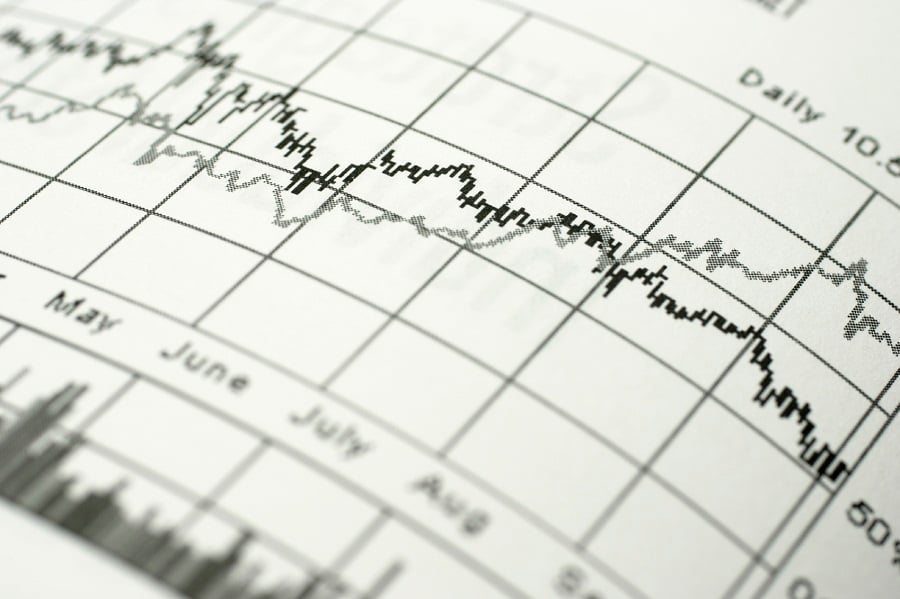For the third time in 15 years, Eric Cinnamond is stuck on the sidelines watching many of his fund manager peers profit from a late-stage bull market.
Almost six years after the market low of 2009, most small-cap stocks are way too expensive for the manager of the $600 million Aston/River Road Independent Value (ARVIX) fund. His fund is 76% in cash, and his predicament is taking more than a financial toll: “2013 and 2014 have been really tough psychologically,” he says.
Even with a rocky start to the year, the stock market remains expensive by many measures. The S&P 500 trades at a price-earnings ratio of 17.8, higher than the 17.1 it sported at the last peak in 2007. Small caps are even pricier. The S&P Small Cap 600 trades at 23.9 times trailing earnings, above its median P/E of 23.1 for the last 20 years, and far higher than what a strict value investor demands. And so in 2014 Aston/River Road Independent Value was down 2%, next to a 13.7% advance for the S&P 500.
(More: Advisers preach calm, buckle in as markets bounce)
A performance gap that big is enough to depress any fund manager. But the bull market can't last much longer, Mr. Cinnamond figures. “Zero percent rates have been the defining variable of this stock market” and that's coming to an end, he says.
If rates start rising, Mr. Cinnamond predicts pain for many small-cap stocks that took advantage of low interest rates to issue debt. The Federal Reserve's quantitative easing program made issuing debt cheap for even the least creditworthy of companies, which benefited small-cap companies in particular. Investor thirst for yield fueled more demand for bonds and drove rates down further still.
Higher rates would make it hard for those companies to service debt obligations, ultimately affecting stock prices, Mr. Cinnamond says — and presenting opportunities for managers like him.
Also expecting a market retreat is Tom Forester, manager of the $144 million Forester Value Fund (FVILX). He's been down on stocks since 2011; he felt much the same way in 2007. Back then, his caution paid off. Forester Value returned 0.4% in 2008, when the S&P 500 plunged 37%. Mr. Cinnamond's value approach also held up during the last crash. He managed The Intrepid Small Cap fund (ICMAX) in 2008, when it lost 16.7% and went on to outpace the S&P 500 in the first two years of the recovery.
(More: Advisers punished for diversifying globally)
Right now, Forester Value has 25% of assets in cash, and doesn't want it to go higher. So even though the fund owns several stocks he thinks are expensive and would like to sell, he's holding on until he finds other stocks to replace them with.
The amount of stimulus-fueled debt, especially in the energy sector, worries Forester. “In oil, much of the new drilling was based on getting access to high-yield debt,” he says. “When rates go up, it will cause some players to fold.” That's particularly troubling given the slide in oil prices to around $50 a barrel from more than $100 as recently as this past summer. Oil producers were one of the biggest issuers of new debt in recent years, raising some $550 billion of bonds and debt since 2010, according to Deutsche Bank.
As any value investor knows, trouble can also open up opportunities. Arik Ahitov, co-manager of the $1.2 billion FPA Capital (FPPTX) fund, a mid-cap value fund, is chipping away at his fund's 27% cash stockpile by focusing on stronger energy players beaten down by volatile oil prices.
On Mr. Ahitov's buy list recently were a pair of energy names, SM Energy (SM) and Rosetta Resources (ROSE). Both trade near their 52-week lows and can be profitable even if oil falls as low as $35 to $40 a barrel, he says. And “the lower the prices of these stocks, the more aggressively we'll buy.”
Lower oil prices have also unfairly punished natural gas companies, says Keith Trauner, co-manager of the $345 million GoodHaven (GOODX) fund. So Mr. Trauner, whose value-oriented fund has 13% in cash, is looking at WPX Energy (WPX), a producer of mainly natural gas. It was recently trading at $11, at the lower end of its 52-week trading range.
In 2015, market turmoil will move value investors with cash off the sidelines, Mr. Trauner says. That sounds like bad news to many stock market investors. But to frustrated value managers like Mr. Trauner and Mr. Cinnamond, it sounds like a great New Year.







